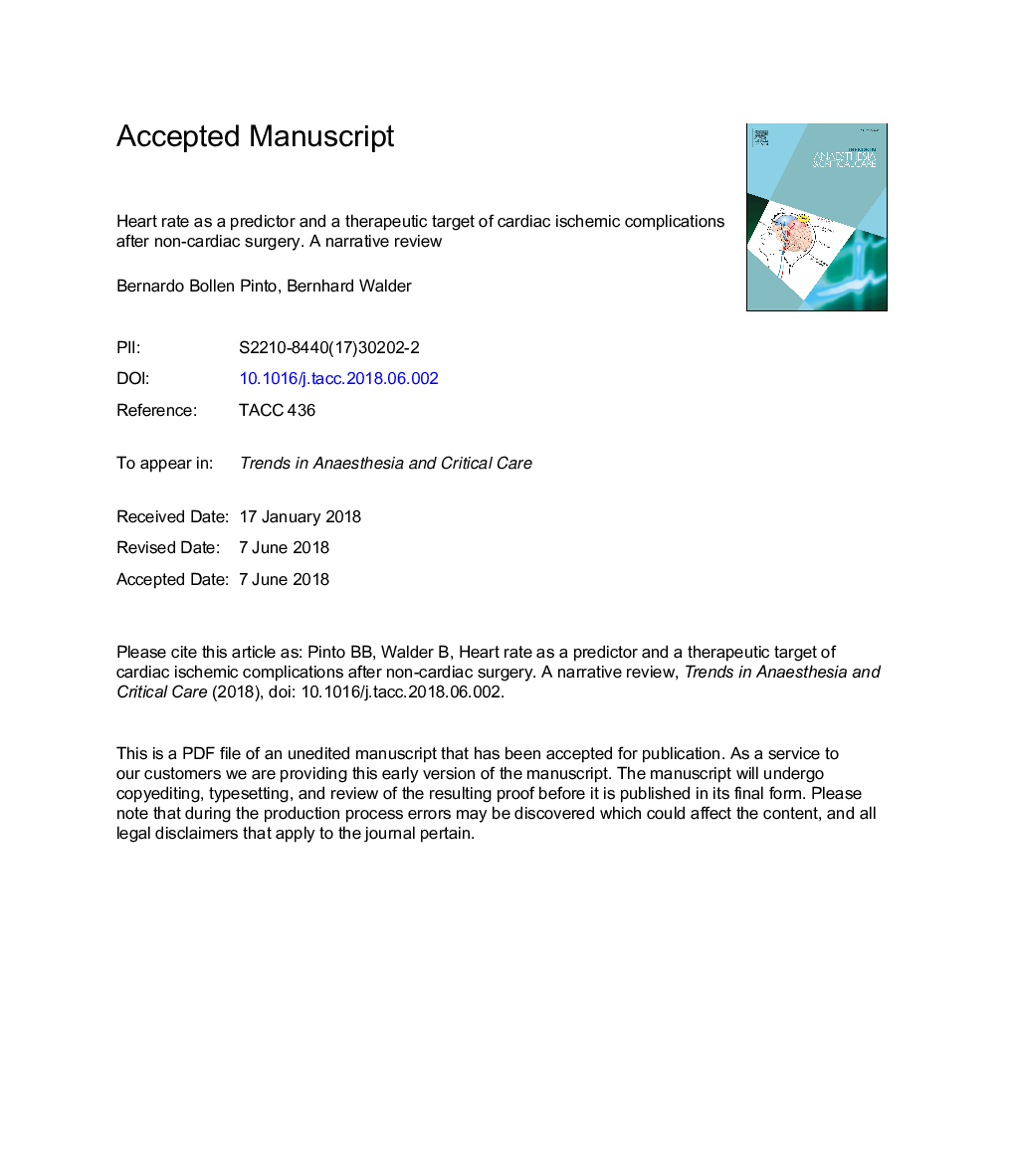| Article ID | Journal | Published Year | Pages | File Type |
|---|---|---|---|---|
| 11022699 | Trends in Anaesthesia and Critical Care | 2018 | 24 Pages |
Abstract
Postoperative cardiac ischemic complications are frequent and strongly associated with postoperative mortality. Elevated heart rate before, during and after surgery increases the risk of postoperative myocardial injury, myocardial infarction and mortality. Yet, in absence of strong causal evidence, heart rate is seldom used for risk stratification. While beta-blockers reduce the risk of tachycardia and myocardial infarction, their initiation within 24â¯h of surgery is harmful. Rather than a “one-size fits all” approach, we propose that safe and efficient administration of beta blockers should take into account both the perioperative risk and the pharmacogenetic profile of each patient. In the future, new drugs designed to modulate heart rate without significant hypotension (e.g. ivabradine) may replace beta-blockers.
Related Topics
Health Sciences
Medicine and Dentistry
Anesthesiology and Pain Medicine
Authors
Bernardo Bollen Pinto, Bernhard Walder,
